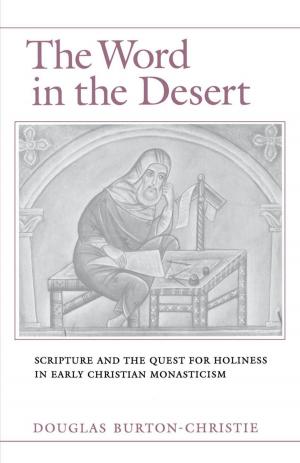Callimachus
The Hymns
Fiction & Literature, Literary Theory & Criticism, Ancient & Classical, Nonfiction, History, Ancient History, Greece| Author: | ISBN: | 9780190266783 | |
| Publisher: | Oxford University Press | Publication: | March 27, 2015 |
| Imprint: | Oxford University Press | Language: | English |
| Author: | |
| ISBN: | 9780190266783 |
| Publisher: | Oxford University Press |
| Publication: | March 27, 2015 |
| Imprint: | Oxford University Press |
| Language: | English |
Callimachus was arguably the most important poet of the Hellenistic age, for two reasons: his engagement with previous theorists of poetry and his wide-ranging poetic experimentation. Of his poetic oeuvre, which exceeded what we now have of Theocritus, Aratus, Posidippus, and Apollonius combined, only his six hymns and around fifty of his epigrams have survived intact. His enormously influential Aetia, the collection of Iambi, the Hecale, and all of his prose output have been reduced to a handful of citations in later Greek lexica and handbooks or papyrus fragments. In recent years excellent commentaries and synthetic studies of the Aetia, the Iambi, and the Hecale have appeared or are about to appear. But there is no modern study in English of the collection of hymns. And while there are excellent commentaries in English on three of the hymns (Apollo, Athena, Demeter), the commentaries on Zeus and on Delos are limited in scope, and there is no commentary at all on the Artemis hymn. Synthetic studies in English for the most part treat only one hymn, not the collection, and tend to focus on Callimachus' intertextual relationships with his predecessors and/or his influence on Roman poetry. Yet recent work is requiring scholars to broaden their perspective and to consider Callimachus' religious, civic, and geo-political contexts much more systematically in attempting to understand the hymns. A further incentive is that apart from the Homeric and Orphic hymns, Callimachus' are the only other hymns that have survived intact; those written in earlier periods are now reduced to fragments. For these reasons a study of the six hymns together is a desideratum. An additional reason is that Callimachus' collection of six hymns is very likely to have been an authorially arranged poetry book, quite possibly the earliest such book that we have intact; therefore, it allows a unique perspective on the evolution of the form. This volume offers a text and commentary of all six hymns for advanced students of classics and classical scholars, as well as interpretive essays on each hymn that integrate what has been the dominant paradigm-intertextuality-into a broader focus on Callimachus' context. Her introduction treats the transmission of the hymns, the potential for and likelihood of the Homeric hymns as models, the hymns as a poetry book, their language and meter (especially in light of recent work done on this topic), performance practices, and their relationship to cult, court, local geographies, and panhellenic sanctuaries. For each hymn Stephens presents the Greek text, a translation, and a brief commentary containing important information or parallels for interpretation.
Callimachus was arguably the most important poet of the Hellenistic age, for two reasons: his engagement with previous theorists of poetry and his wide-ranging poetic experimentation. Of his poetic oeuvre, which exceeded what we now have of Theocritus, Aratus, Posidippus, and Apollonius combined, only his six hymns and around fifty of his epigrams have survived intact. His enormously influential Aetia, the collection of Iambi, the Hecale, and all of his prose output have been reduced to a handful of citations in later Greek lexica and handbooks or papyrus fragments. In recent years excellent commentaries and synthetic studies of the Aetia, the Iambi, and the Hecale have appeared or are about to appear. But there is no modern study in English of the collection of hymns. And while there are excellent commentaries in English on three of the hymns (Apollo, Athena, Demeter), the commentaries on Zeus and on Delos are limited in scope, and there is no commentary at all on the Artemis hymn. Synthetic studies in English for the most part treat only one hymn, not the collection, and tend to focus on Callimachus' intertextual relationships with his predecessors and/or his influence on Roman poetry. Yet recent work is requiring scholars to broaden their perspective and to consider Callimachus' religious, civic, and geo-political contexts much more systematically in attempting to understand the hymns. A further incentive is that apart from the Homeric and Orphic hymns, Callimachus' are the only other hymns that have survived intact; those written in earlier periods are now reduced to fragments. For these reasons a study of the six hymns together is a desideratum. An additional reason is that Callimachus' collection of six hymns is very likely to have been an authorially arranged poetry book, quite possibly the earliest such book that we have intact; therefore, it allows a unique perspective on the evolution of the form. This volume offers a text and commentary of all six hymns for advanced students of classics and classical scholars, as well as interpretive essays on each hymn that integrate what has been the dominant paradigm-intertextuality-into a broader focus on Callimachus' context. Her introduction treats the transmission of the hymns, the potential for and likelihood of the Homeric hymns as models, the hymns as a poetry book, their language and meter (especially in light of recent work done on this topic), performance practices, and their relationship to cult, court, local geographies, and panhellenic sanctuaries. For each hymn Stephens presents the Greek text, a translation, and a brief commentary containing important information or parallels for interpretation.















